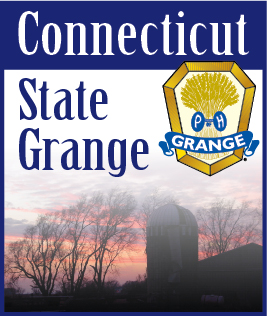| |
AUGUST 10, 2011 -- Rural America may soon be immersed in Facebook, Hulu, and Skype like the rest of us. As of last Friday, AT&T, CenturyLink, FairPoint, Frontier, Verizon, and Windstream submitted a proposal to the Federal Communications Commission (FCC) to speed broadband deployment to those residing in rural areas; roughly 4 million people. The proposal, called America’s Broadband Connectivity Plan, is highly complementary to the FCC’s own National Broadband Plan, which seeks to improve broadband access throughout the nation. Together, the federally-operated FCC and private-sector broadband companies will work for a faster, smoother transition to a world where everyone can enjoy high-speed, broadband internet.
Both plans share the mutual goals of modernizing the Universal Service Fund (USF) without increasing its size and reforming the Intercarrier Compensation (ICC) system to eventually phase down charges between companies for handling traffic, benefitting both company and consumer. Modernizing the USF entails transitioning it over a 5-year period to focus exclusively on broadband development, giving virtually all Americans access to it, while also avoiding an increase in its $4.5 billion cost. Specifically, the proposal would priotritize the USF on targeting broadband development in regions where there is no incentive for private companies to begin providing services. Reforming the ICC would mean implementing, over a period of 5 to 8 years, a standard $0.0007 per minute intercarrier charge. In addition, rules and access rates would be updated to wash out the arbitrage scams that waste FCC resources and ultimately cost the consumer more money.
This probably means very little to those residing in urban areas where broadband internet has been available for years at affordable rates. However, many people living in America’s heartland are still without access to high-speed internet. In Kansas alone, roughly 8.3% of the state’s total population lives without broadband internet, and that number jumps to an alarming 28.1% in rural areas (Salina Journal). It is vital to the future of rural areas that they gain access to broadband. According to the White House; “With new or increased broadband access, communities can compete on a level playing field to attract new businesses, schools can create distance learning opportunities, medical professionals can provide cost-efficient remote diagnoses and care, and business owners can expand the market for their products beyond their neighborhoods to better compete in the global economy.”
However, some in rural communities are distraught over the new proposal, claiming that without federal support, their local rural telephone companies will cease to exist. Unfortunately, this is the pain of progress. The old-school, copper landline, rotary-dial days are over, and wireless, high-speed broadband internet is the future (in fact, I don’t mind telling you I’ve never actually used a rotary dial- keep in mind I was born in 1989). Incidentally, according to a study by the Pew Internet & American Life Project, those ages 70-75 have increased internet usage more than any other age group since 2005; showing that internet isn’t just for the young and tech-savvy but is something that can benefit those of all age groups and walks of life (Senior Journal). The conversion from copper landlines to wireless internet will be a significant and slightly complicated one, but buggy repair shops went out of business too and today nobody would think twice about that. I firmly believe that some day in the future, everyone will feel the same about landline telephones. What America’s Broadband Connectivity Plan works to do is make that transition as efficient and cost-effective as possible; giving rural Americans affordable access to phone, VoIP, and internet.
In the last 24 hours alone, I’ve used the internet to pay credit card bills, shoe shop, download music, exchange emails with my mother, find a recipe for snicker doodles, Skype with my little brother, and look up when my dry cleaning will be ready. These are all conveniences made possible by wireless, broadband internet. Soon, those residing in rural areas will be afforded these amazing modern conveniences as well. However, even more than cookies and dry cleaning, rural America will be given the necessary resources to stay current and competitive in today’s market place, giving everyone across the country an equal opportunity to thrive and prosper.
-Grace Boatright
National Grange Programs Assistant |
